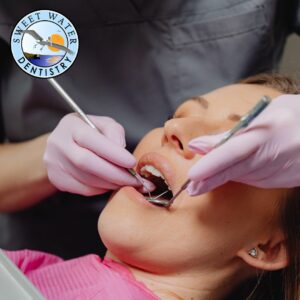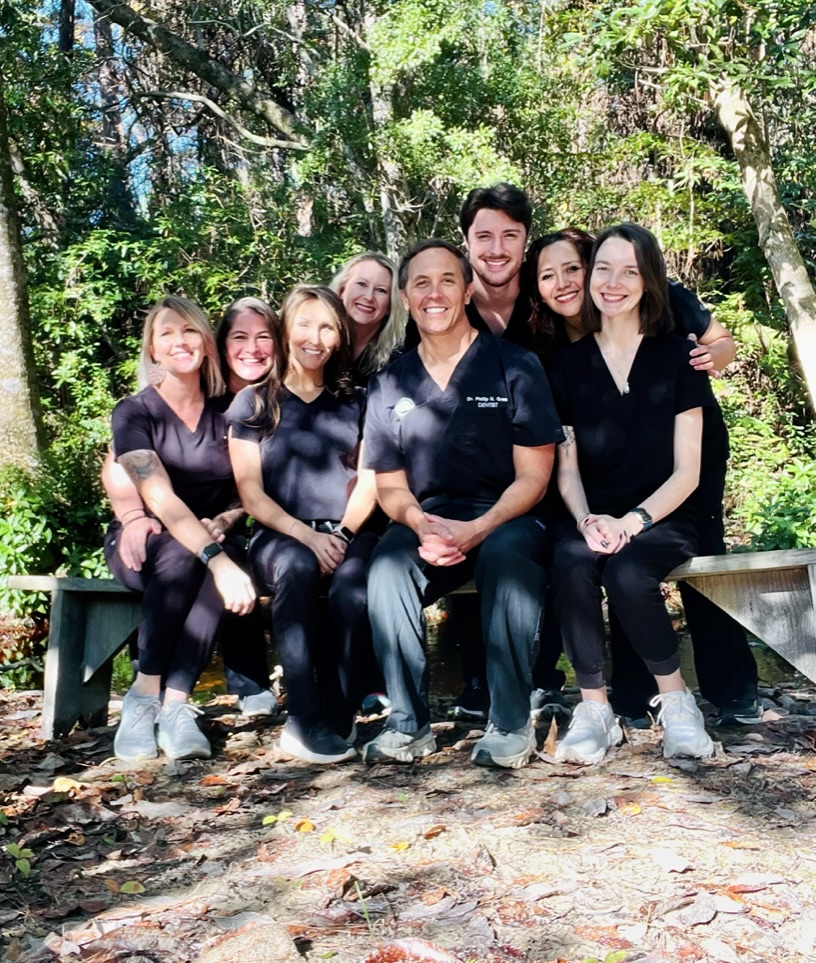Dry Socket Information
If you have recently had a tooth extracted and are still experiencing pain in the area of the removed tooth, you may be suffering from a dry socket. If you believe you do have a dry socket, you need to contact your Fairhope, AL dentist, Dr. Phillip Greer of Sweet Water Dentistry.
A dry socket forms when the blood clot of your tooth socket comes out. A blood clot forms in your socket after tooth removal to aid in the healing of the socket as well as protect the nerves in the socket. Think of the blood clot as a “scab” just like you get if you get a cut or wound. A scab protects the wound and helps it heal. Same thing with a blood clot.
If a blood clot does dislodge, it can cause the nerves in your socket to become exposed, and it is very painful. This pain will start in your jaw area and can also shoot up into your ear. If you develop a dry socket, this can cause bad breath and a nasty taste in your mouth. These are all signs of a dry socket if it has been at least two days after your tooth removal. Dry socket is only common in about 2% of tooth removals. However, dry socket is as much as 20% more common in wisdom tooth removal.
To avoid dry sockets, you should follow the post-operation instructions that are given to you when you get a tooth removed. These instructions include not eating sticky, spicy solid foods, avoiding sucking through a straw, avoiding rinsing out your mouth, avoiding spitting, and more.
If you have a tooth removed, be sure to follow the instructions to help prevent a painful dry socket. However, if you do develop it, you will need to contact Dr. Phillip Greer of Sweet Water Dentistry so that he can pack the socket paste into the socket, to help alleviate the pain and promote healing.
Visit us for expert care:
Sweet Water Dentistry
📍 5915 Sweetwater Cir, Fairhope, AL 36532
🌐 sweetwatersmile.com
📞 Call or Text: (251) 210-2773
Follow us on Facebook and Instagram for the latest updates and special offers!



